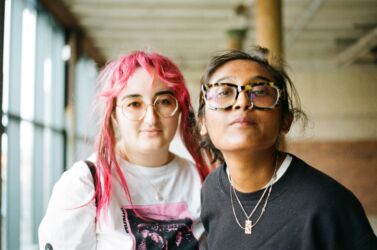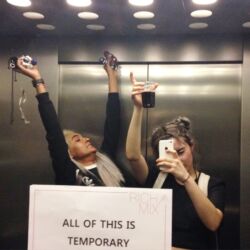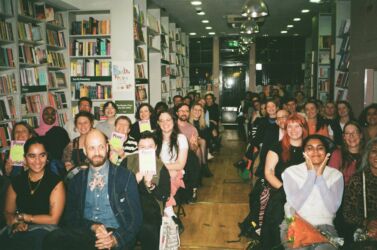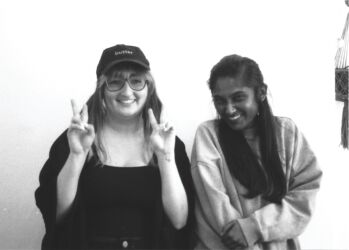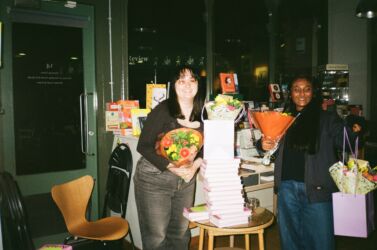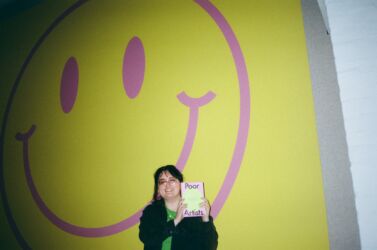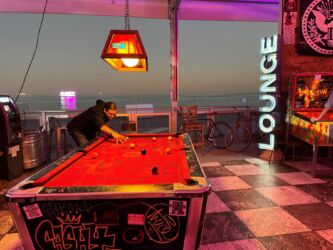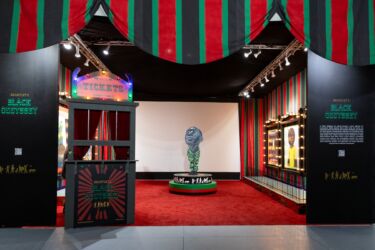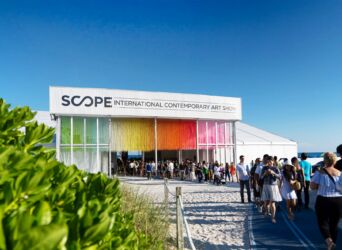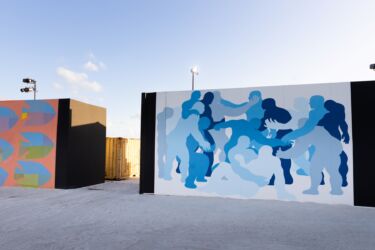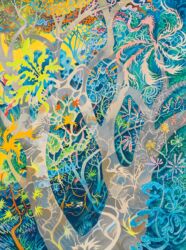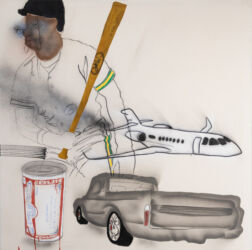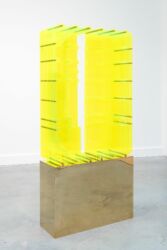Gabrielle de la Puente, half of the art critic duo The White Pube, talks about:
A few things people outside of the UK need to know about Liverpool, where she’s based; the origin story of the White Pube, when Gabrielle and Zarina were in art school together; the reputation of Central Saint Martins, the art school where they met, including where it was when they started school, which was already in a more gentrified, corporate atmosphere (they had to use key cards to get into the studios, for example); their working dynamic since their collaboration started, which involved more in-person activity early on when they were regularly in demand to talk about criticism at various art schools (because of how different they were from the clichés of an art critic), to now being more consistently using WhatsApp and ‘flying by the seat of our pants;’ how key it is that they post about culture-at-large, not just art (their film restaurant reviews have been their most read); her solo visit to a special preview of a Peter Doig show in Edinburgh that had a tragic quality to it, but also became a great symbol for the artist’s struggle; their book, Poor Artists, including how they wrote it with both readers as well as subjects who they interviewed (and paid), including a moment in the book when the narrator talks about their experience of a performance in a gallery; and the case of the late artist, Nat Tate.
In the second half of our conversation, which is available to Patreon supporters, we dig into Poor Artists, including art opening dynamics, racist behavior, pay-to-play in the art world – which Gabrielle feels is impossible to get away from, calling those who engineer these schemes ‘zombies,’ but recognizing how strong the pull these opportunities are on artists who too often feel that it’s an investment they should be making (while being more lottery than investment); how so much of her impression of the art world, and in turn the story of Poor Artists – including conversations with artists in the many countries she’s visited as the White Pube – is how much open call fees and applications and so on are constantly getting in the way of the art; her discomfort with authority and, while she’s enjoyed sharing the book and its messages with people, she doesn’t want it (their message) to get too big; the effectiveness of the White Pube’s Discord community, as a form of mutual aid, and as a manifestation of community building that Gabrielle is totally happy, and comfortable, with; her Long COVID, which mainly takes the form of POTS (Postural orthostatic tachycardia syndrome), how much if affects her life, and how frustrating it’s been thus far to get disability rights for it; the infectious nature of ‘performing being an artist’ on social media, another ill that Poor Artists tries to quell ( the character of QT in the book is their take on that phenomenon); Gabrielle’s idea to live-stream her writing a review, as the critic equivalent of an artist in a work-in-progress; how the White Pube, both in Poor Artists and in general, is advocating for a post-anarchist world via Universal Basic Income along with ending the need for museums, art world hierarchies, and other alternative worldviews, giving them some home; and how, in short, they’re able to make a living as art critics.
The Conversation is excited to be included as Number 2 in Feedspot’s list of the Top 70 Art Podcasts. Thank you, Feedspot!
This podcast relies on listener support; please consider becoming a Patreon supporter of the podcast, for as little as $1/month, here: https://www.patreon.com/theconversationpod

